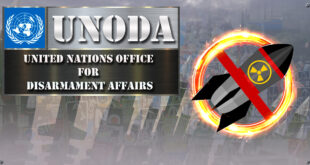What began as a protest against a monthly tax on WhatsApp users has snowballed into a mass movement for systemic change Lebanon’s Prime Minister Saad al-Hariri announced his resignation on Tuesday following two weeks of street protests that brought the capital Beirut to a standstill and led to violence between rival political factions. Mr. Hariri said he had hit “a dead end” and hence quit. Why protests? The trigger was a government proposal to impose a $6 monthly tax on WhatsApp users to raise funds. The government immediately withdrew the proposal after the October 17 protests, but the protesters never left the streets. They demanded an end to “corruption” and the resignation of the country’s powerful elite with more and more people joining them. The Lebanese pound has slipped steadily in recent weeks against the dollar amid a currency crunch. The pound has been officially pegged at 1,500 to a dollar. but in the black market, its value fell up to 1,750. Many Lebanese were also angry with the government’s handling of the recent wildfires that burned thousands of acres. The country is also facing electricity and water shortages. So there was mounting public resentment against Lebanon’s ruling elite. The WhatsApp tax unleashed this anger, leading to mass protests. What do they want? What began as a protest against a tax has snowballed into a movement for systemic change. The protesters see Mr. Hariri’s resignation as a victory, but they want more leaders to follow suit. Lebanon has a confessional system, which was introduced after the 1975-1990 civil war, in which a Christian will be President, a Sunni will be Prime Minister and a Shia Parliament Speaker. Roughly 54% of Lebanon population are Muslims (Shias and Sunnis make up 27% each), 40.5% Christians and 5% Druze. The complex religious dynamics turned Lebanon into a geopolitical theatre for foreign players. France retains some influence through the Maronite Christians, while Saudi Arabia has leverage over Sunni political parties and Iran backs the Shia parties, Hezbollah and Amal. The protesters believe the leaders are more concerned about their patrons abroad than addressing more pressing civic and administrative issues at home. They want both President Michel Aoun and Speaker Nabih Berry to resign along with the Prime Minister and the confessional system to be overhauled for a new secular, democratic political order. What next? President Aoun could reject the resignation of Mr. Hariri and ask him to form a new Cabinet. Or he could ask him to continue as a caretaker Prime Minister until fresh elections are held. Even forming a new Cabinet would not be easy in Lebanon’s sectarian system. It took nine months for Mr. Hariri to form his coalition government that was sworn in in January. And it’s not clear whether a new government or even fresh elections would placate the protesters, as under the current system, the establishment parties would secure more or less the same number of seats. The protesters’ calls for systemic reforms will be met with strong resistance from the main parties, which have built sectarian political constituencies over the past two decades and would not like their influence to be swept away. Hezbollah, the powerful Shia party-cum-militia, has already said the protests were instigated by foreigners. So it’s a dead end, not just for Prime Minister Hariri but also for the country’s established elite as well as the street revolutionaries.
Check Also
Genocide Convention
The United Nations Convention on the Prevention and Punishment of the Crime of Genocide, …
 Chinmaya IAS Academy – Current Affairs Chinmaya IAS Academy – Current Affairs
Chinmaya IAS Academy – Current Affairs Chinmaya IAS Academy – Current Affairs



